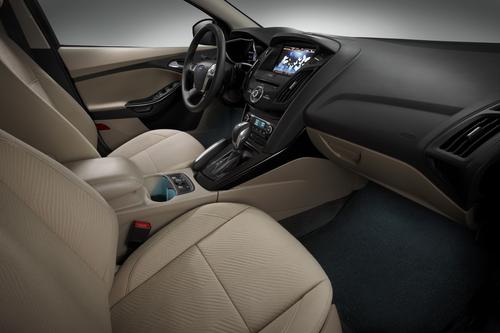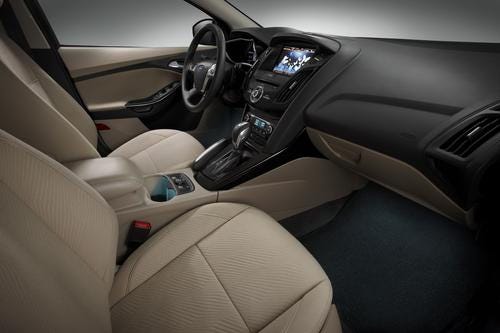December 21, 2011

Ford Motor Co. recently became the first automaker to use a material made from recycled plastic bottles in a car's seat fabric. The material, called Repreve, is a polyester fiber made from a blend of recycled materials. Manufactured by Unifi, Inc., the fiber derives from used plastic water bottles and other post-consumer waste, as well as post-industrial manufacturing waste, such as nylon.
The 2012 Ford Focus Electric runs on battery power alone, so it does not require gasoline and produces no carbon dioxide emissions. Each Focus keeps 22 16-ounce plastic polyethylene terephthalate (PET) water bottles out of landfills by recycling them into the seat fabric's fibers, according to the Repreve Website.

"Not only does the use of this fabric in [the] Focus Electric help reduce waste, it also helps to offset the need to produce new raw material from crude oil -- a process that consumes precious energy and natural resources," Carol Kordich, lead designer of sustainable materials for Ford, said in a press release.
Ford started using sustainable fabrics in its automobiles in 2009. At that time, the company mandated that its fabric suppliers use at least 25 percent recycled content in their products for all vehicles for model year 2009 and beyond. Since then, 37 different fabrics that meet these requirements have been developed and incorporated into Ford vehicles.
According to Kordich, Ford now mandates that its vehicles with eco-friendly powertrains, such as the Focus, contain fabrics that are 100 percent sustainable. The Repreve material meets this requirement, she says, because it combines pre-consumer industrial fiber waste with post-consumer waste. In addition, use of the fabric cuts energy consumption and CO2 emissions by eliminating the need to use refined crude oil for producing plastic fibers.
Ford is considering using this fabric in its entire line of cars and trucks.
About the Author(s)
You May Also Like



